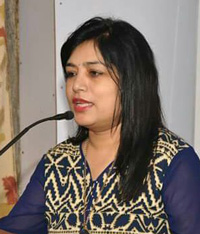How to Avoid Pregnancy After Missing Period & Sex Naturally?

Quick Summary
Here are some natural ways to avoid pregnancy after missing period:
- Avoid unprotected sex
- Use emergency contraception
- Take birth control pills
For more information, please consult with your doctor.
Table of Contents
- Understanding the Fertility Cycle
- Benefits of Avoiding Pregnancy Naturally
- Family Planning Methods to Avoid Pregnancy
- Herbal Birth Control Methods
- Home Remedies to Avoid Pregnancy
- Contraception to Avoid Pregnancy
- Things To Remember
- When to Consult a Gynaecologist?
- Takeaway
- Frequently Asked Questions
- References
Sexual activity is essential for a healthy body and relationship with your partner. However, precautions should be taken to avoid unwanted pregnancies. You must be wondering how to avoid pregnancy naturally.
A missed period can be concerning, as it could indicate pregnancy. Various contraceptive methods are available these days, but some people prefer natural methods to prevent pregnancy.
If you are looking for answers to - “How to avoid pregnancy after missing period naturally?”, you have reached the right place! Read on to discover some helpful methods.
Download our App today to plan your surgery seamlessly and stress-free!
Understanding the Fertility Cycle
The first step to avoiding pregnancy is understanding your menstrual cycle and when you're most fertile. The menstrual cycle refers to the body’s process of preparing the uterus for pregnancy.
A menstrual cycle typically lasts around 28 days but can vary between 21 to 35 days. It is caused by a change in hormonal levels. The cycle has the following main phases:
- Menstrual Bleeding:
- The first day of the cycle is considered the first day of menstrual bleeding.
- This phase usually lasts for about 1 to 5 days.
- It refers to the time when your uterus sheds itself and the remains exit through the vagina when a pregnancy doesn't occur.
- It may also be referred to as the menses phase and can last anywhere between 3 to 7 days.
- Follicular Phase:
- This phase of your menstrual cycle occurs from the sixth day to the 14th day of your menstrual cycle.
- The body’s hormone oestrogen elevates to thicken the lining of your uterus to ensure it is ready to support a fertilised egg.
- Your ovaries release one egg every month, also getting ready for fertilisation.
- In this phase, the follicle stimulating hormone (FSH) helps the follicles (which contain the egg or ovum) in your ovaries to grow.
- Ovulation:
- On day 14 of the cycle, generally ovulation occurs.
- This is when the matured egg in the follicle is released from the ovary due to the rise in the luteinizing hormone (LH).
- Luteal Phase:
- In this phase, the progesterone hormone levels rise to prepare for a potential pregnancy.
- It takes place from day 15 to day 28 of the menstrual cycle.
- The egg now travels down the fallopian tube towards the uterus.
- If the egg fertilises with a sperm, the egg attaches itself to the uterus and you get pregnant.
- However, if you don't get pregnant, the uterus gets rid of its lining by bleeding out of your vagina.
Knowing when you're ovulating can help you avoid an unplanned pregnancy. Ovulation usually occurs in the middle of the cycle, around day 14, but it can vary between individuals.



Benefits of Avoiding Pregnancy Naturally
Natural ways to avoid pregnancy after having sex can be an option for women who prefer non-invasive and natural contraception. Here are some advantages of using natural methods to prevent unwanted pregnancy:
- Easily Accessible: Home remedies and natural methods are cost-effective and easily accessible. These may include the use of natural ingredients like neem, parsley, and papaya, traditionally used as natural contraceptives.
- Natural: The natural methods to avoid pregnancy are non-invasive and do not require inserting any devices or medications. They are a safer option for women sensitive to hormonal contraceptives due to their environmentally friendly nature.
- No Side- Effects: These remedies can be effective without the risk of side effects that one may often experience when using hormonal contraceptives.
It is important to remember that natural methods are not 100% effective against pregnancy and may not protect against sexually transmitted infections. Therefore, you must discuss the most suitable contraception method with your doctor.

Family Planning Methods to Avoid Pregnancy
Keeping track of your menstrual cycle can help with fertility awareness. There are numerous ways to prevent pregnancy naturally. Here are some options:
- Calendar Method: It is a family planning technique where you can track your menstrual cycle to identify the fertile window. This helps you to avoid pregnancy. These days even mobile apps are available to track your periods.
- Basal Body Temperature Method: Measuring your body temperature in the morning aids in tracking the ovulation time and optimising your chances of conception.
- Rhythm Method: If you wish not to conceive, you should keep track of your menstrual cycle for about 12 months.With this information, you can calculate when you are most fertile. To do this, you can follow these steps:
- Note the length of the menstrual cycle as it can vary from person to person.
- The Shortest Cycle: It is counted by the number of days from the first day of bleeding to the start of the next cycle.
- The Longest Cycle: It is the number of days from the first day of bleeding to the beginning of the next cycle, with the longest gap in between.
- Find the number of days in your shortest cycle and subtract 18.
- Now, find the number of days in your longest cycle and subtract 11.
- Avoid having sex between your first and last fertile days.
- There are apps available to help with tracking, but it's important to note that slight variations in cycle length can make it challenging to predict fertility accurately.
- Note the length of the menstrual cycle as it can vary from person to person.
- Standard Days Method: This method is similar to the rhythm method but comparatively simpler. It includes days 8 through 19 of the menstrual cycle as the fertile time for all women, making ovulation tracking easier.
The standard days method works better for women whose menstrual cycles are less than 32 days or more than 26 days in length.
- The Cervical Mucus Method: In this technique, you need to detect any changes in the consistency and colour of your cervical mucus to predict ovulation and your most fertile days.
When you are ovulating more cervical mucus will be released whereas there will be very little discharge just after your period. - Pull-Out Method: When the man pulls out before ejaculation, it is known as the pull-out method or withdrawal method. This method may not be as effective as other methods, but it may reduce the risk of pregnancy.
- Breastfeeding: This approach generally works for 6 months from the day of delivery. It involves only breastfeeding your baby for about 4 hours every day and 6 hours at night. It keeps your ovaries from releasing an egg due to hormonal differences.
It is also important to remember that this method may only work till the time your menstruation starts again.
Note: It is important to remember that these methods may not be 100% effective. They may work well along with contraception. It is also important to consult a doctor before relying on any such methods.
Herbal Birth Control Methods
Several herbs have been used for centuries as traditional birth control methods. Some of these include:
- Extract of Neem Tree: The neem tree extract has been used in traditional medicine as a natural contraceptive. It may be used in the form of vaginal tablets.
When neem tree extract is combined with certain other herbs, the mixture may work as a spermicide and prevent pregnancy. However, more research is needed to confirm its effectiveness. - Wild Carrot’s Seed: This herb, also known as Queen Anne’s lace, has been used as a natural contraceptive for centuries. However, more research is needed to establish the efficacy.
- Castor Bean: Ingestion of a peeled castor seed may prevent pregnancy for about 8 to 12 months. However, this is based on early research, so not enough evidence is available on the same.
- Gossypol: It is a pigment derived from plants such as the cotton plant. It works by reducing the function of sperm. Meanwhile, it is important to remember it may lead to infertility in some men.

Note It is important to note that herbal remedies have possible effects on avoiding pregnancy naturally.
However, more evident research needs to bring a conclusion. It is also important not to start treatment on your own before consulting a doctor regarding condition-targeted changes.
Home Remedies to Avoid Pregnancy
Home remedies are the easiest way to help with multiple conditions and avoiding pregnancy can be one of these. Home remedies involve the usage of items that are easily available in our households.
Instead of turning to synthetic hormones or devices, such as birth control pills or IUDs (intrauterine devices), home remedies may be better alternatives. This is because hormonal methods may not be suitable for everyone due to their potential side effects.
Some of the home remedies to avoid pregnancy naturally include:
- Parsley: Parsley tea is believed to help with the stimulation of a menstrual flow by increasing uterine contractions.
- Papaya: In earlier days, papaya was used as a natural contraceptive. Papaya seeds are believed to possess anti-implantation, contraceptive and abortifacient properties.
- Pineapple: The enzymes present in pineapple can promote uterine contractions and prevent pregnancy by inducing periods naturally.
- Turmeric: The compound curcumin present in turmeric disrupts the function of the sperm and acts as a spermicidal, thereby, preventing pregnancy.

Contraception to Avoid Pregnancy
Home remedies and other natural birth control methods may be effective to some extent but limited to some people only. It is important to note these methods lack scientific evidence.
The most efficient way to avoid pregnancy after having unprotected sex is to use contraception. These options are not guaranteed to prevent pregnancy but may help reduce the risk. The contraception methods include:
- Emergency Contraception: It is also known as the 'morning-after pill’ or ‘birth control pills’. After unprotected sex, the contraceptive pills help to prevent pregnancy.
It is most effective if taken as early as possible, but it could be taken up to 72 hours after unprotected sex. Consult with a doctor before taking one. - Barrier Method: Condoms and diaphragms are the most commonly available barrier methods to prevent pregnancy. These methods create a physical barrier between the sperm and the egg, preventing fertilisation.
Intrauterine devices like Copper-T can also be recommended by your doctor to prevent pregnancy.
Note: Birth control pills are generally available as over-the-counter medication. However, it is important to consult a doctor regarding the associated side effects of birth control pills if you have existing health conditions such as PCOS, etc.
Things To Remember
Natural family planning methods involve tracking and understanding your menstrual cycle and using this information to avoid or plan pregnancy. Some things to keep in mind while using natural contraceptives include:
- Natural Methods are Not Always Effective: Natural contraception methods are generally considered less effective than other forms of contraception, such as condoms, oral contraceptives, or IUDs.
- Track Your Menstrual Cycle: Keeping track of your menstrual cycle through a calendar or mobile app can help you identify your fertile days and avoid unprotected intercourse during ovulation.
- Awareness of STIs: Natural contraception methods do not protect against sexually transmitted infections (STIs). Using a barrier method like a condom is important to reduce the risk of contracting or transmitting STIs.
- Consult Your Healthcare Provider: Learn about the effectiveness of and concerns you may have about natural contraception methods. You may also clear any doubts regarding your menstrual cycle or sexual health from your healthcare provider.
When to Consult a Gynaecologist?
If you have missed a period after sex, consult a gynaecologist to know if you are possibly pregnant. There could be other underlying issues causing a missed period. Here are some general guidelines on when to consult a gynaecologist:
- Missed Period: Taking a pregnancy test after you miss your period is recommended. Consult a gynaecologist if the test is positive or if you have missed two or more periods in a row.
- Irregular Periods: For those with a history of irregular periods, it is recommended to consult a gynaecologist to know the reason behind it.
- Unusual Symptoms: Unusual symptoms such as pain, discomfort, or abnormal vaginal discharge can indicate certain underlying medical illnesses.
- Concerns About Contraception: Talk to your gynaecologist to know the effectiveness of your current method of contraception or if you are thinking about switching to a different one.
Read also, the difference between obstetrics and gynaecology.
Takeaway
Missed periods and sexual intercourse can cause anxiety to individuals who want to avoid pregnancy. However, several natural methods can be used to prevent pregnancy.
Including herbal birth control, changes to diet and lifestyle, and tracking the menstrual cycle can help avoid pregnancy naturally after a missed period. However, it is crucial to discuss with a specialist to know the possible cause.
If you have missed periods and are concerned about the possibility of pregnancy. It is important to take a pregnancy test. HexaHealth is a reliable and exceptionally apt health tech platform comprising of experienced and highly qualified medical practitioners.
Suggested Reads:
- Is Irregular period a Sign of pregnancy?
- Can Irregular periods affect pregnancy
- How to Get Periods Immediately if Delayed
- How to Increase Blood Flow During Periods
Download our App today to plan your surgery seamlessly and stress-free!
Frequently Asked Questions
How to avoid pregnancy naturally?
There are several methods for pregnancy naturally, also known as fertility awareness or natural family planning.
These methods involve tracking and understanding your menstrual cycle, cervical mucus, and basal body temperature to determine the days of the month when you are most likely to get pregnant. These methods can be effective but require dedication and careful tracking.
How to avoid pregnancy after having sex?
Emergency contraception methods can be used after unprotected sex or contraceptive failure (such as a condom breaking) to prevent pregnancy. Consume a morning-after pill, which is usually effective for 72 hours.
How can I prevent pregnancy naturally after 10 days?
Natural foods that stop pregnancies after one week have little scientific support. After having intercourse, women are advised to eat fruits like papaya, figs, and dry fruits like apricots for 3–4 days, twice a day.
What should be eaten to avoid pregnancy?
These are some organic foods that can help you get your period and avoid getting pregnant:
- Parsley
- Ginger
- Papaya
- Pineapple
- Apricot
- Cinnamon
What is the best safest way to avoid pregnancy?
Here are some options for birth control that are widely available and generally considered safe:
- Condoms
- Birth control pills
- Intrauterine devices (IUDs)
- Implants
How does lemon juice prevent pregnancy?
Some studies claim that lemon juice or other natural remedies can prevent pregnancy, but these methods are unreliable and can lead to unintended pregnancy.
What are the natural methods to avoid pregnancy at home?
There are several natural methods that can be used to help avoid pregnancy at home. These methods are also used as home remedies for abortion. Here are a few natural methods that can be used to avoid pregnancy:
- Abstinence: Abstaining from sexual activity is the most effective way to avoid pregnancy.
- Fertility awareness: This method involves tracking your menstrual cycle and avoiding sexual activity on days when you are most fertile.
- Withdrawal: The "pull-out" method involves the male partner withdrawing his penis from the vagina before ejaculating.
- Natural family planning: This method involves using a combination of fertility awareness and other techniques to help identify the most fertile days of the menstrual cycle and avoid sexual activity on those days.
How to avoid pregnancy naturally after 20 days?
Rue is a fantastic natural cure for preventing unintended pregnancy within 15-20 days. Rue is a very powerful tea that is frequently used. Pour two teaspoons of the herb into a pot of boiling water to make this treatment.This tea should be consumed two to three times daily.
What are the ways to stop pregnancy?
There are several methods that can be used to help prevent pregnancy. These methods can be divided into two main categories: natural methods and artificial methods.
Natural methods of preventing pregnancy include:
- Abstinence
- Fertility awareness
- Withdrawal
- Natural family planning
Artificial methods of preventing pregnancy include:
- Contraceptives
- Condoms
How to avoid pregnancy naturally after 20 days?
Rue is a fantastic natural cure for preventing unintended pregnancy within 15-20 days. Rue is a very powerful tea that is frequently used. Pour two teaspoons of the herb into a pot of boiling water to make this treatment.This tea should be consumed two to three times daily.
References
All the articles on HexaHealth are supported by verified medically-recognized sources such as; peer-reviewed academic research papers, research institutions, and medical journals. Our medical reviewers also check references of the articles to prioritize accuracy and relevance. Refer to our detailed editorial policy for more information.
- Sung S, Abramovitz A. Natural Family Planning. StatPearls Publishing; 2022.

- D; H. [natural family planning methods and barrier: CNGOF contraception guidelines] [Internet]. U.S. National Library of Medicine.

- RK; N. Can curcumin provide an ideal contraceptive? [Internet]. U.S. National Library of Medicine.

- M; RTM. Curcumin: A potential vaginal contraceptive [Internet]. U.S. National Library of Medicine.

- Joshi SN;Katti U;Godbole S;Bharucha K;B KK;Kulkarni S;Risbud A;Mehendale S; Phase I safety study of praneem polyherbal vaginal tablet use among HIV-uninfected women in Pune, India [Internet]. U.S. National Library of Medicine.

- Memudu AE, Oluwole TJ. The contraceptive potential of Carica papaya seed on oestrus cycle, progesterone, and histomorphology of the utero-ovarian tissue of adult wistar rats [Internet]. U.S. National Library of Medicine; 2021.

- Memudu AE, Oluwole TJ. The contraceptive potential of Carica papaya seed on oestrus cycle, progesterone, and histomorphology of the utero-ovarian tissue of adult wistar rats [Internet]. U.S. National Library of Medicine; 2021.

- Monji F;Adaikan PG;Lau LC;Bin Said B;Gong Y;Tan HM;Choolani M; Investigation of uterotonic properties of Ananas comosus extracts [Internet]. U.S. National Library of Medicine.

- Castor bean: Overview, uses, side effects, precautions, interactions, dosing and reviews [Internet]. WebMD.

- Gossypol: Overview, uses, side effects, precautions, interactions, dosing and reviews [Internet]. WebMD.

- Jansen, G.C. & Wohlmuth, Hans. (2014). Carrot seed for contraception: A review. Australian Journal of Herbal Medicine. 26. 10-17.

- Ajmera R. 7 surprising benefits of parsley tea (and how to make it) [Internet]. Healthline Media; 2019.

- Young B. 12 natural ways to induce a period [Internet]. Healthline Media; 2022.

- Santos-Longhurst A. How to get regular periods naturally: 8 home remedies for irregular periods [Internet]. Healthline Media; 2023.

Last Updated on: 17 August 2023
Author
HexaHealth Care Team
HexaHealth Care Team brings you medical content covering many important conditions, procedures falling under different medical specialities. The content published is thoroughly reviewed by our panel of qualified doctors for its accuracy and relevance.
Expert Doctors (10)
NABH Accredited Hospitals (5)
Latest Health Articles


























 Open In App
Open In App